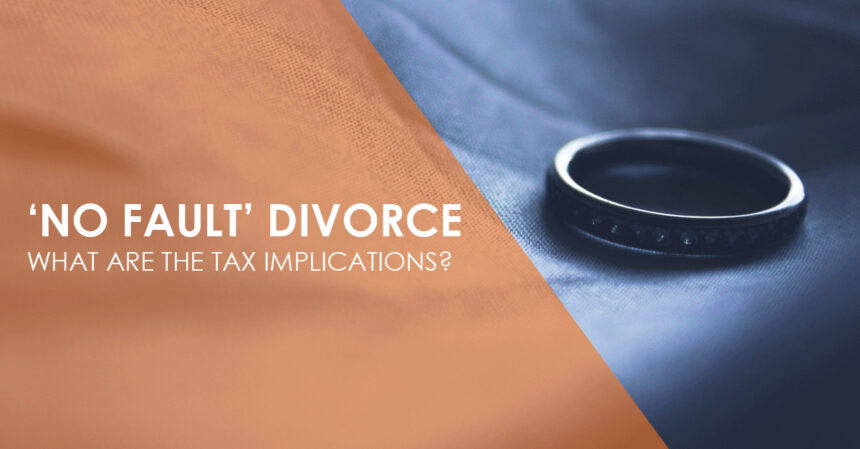There has been a significant alteration in divorce laws for England and Wales, with a ‘no fault’ divorce now permitting estranged couples to end their marriage without having to blame each other. But what are the tax implications of this change?
Under the new law a simple statement is now sufficient, detailing that the marriage has irretrievably broken down and there will no longer be any need to point blame.
Find below a summary of some of the key tax issues to consider:
- Capital Gains Tax (CGT)
Before the divorce is finalised, the couple will be ‘connected persons’ for CGT purposes, meaning any transfers of assets between the couple will take place at market value, irrespective of whether cash has been exchanged. The person making a transfer could therefore be left with a CGT liability, despite not receiving any consideration to pay the tax.
- Income Tax
Whilst the transfer of assets under a divorce settlement are not subject to income tax, if someone receives income producing assets from their former spouse, such as shares or income bonds, this will be taxable on the interest and dividend income received since the date of transfer.
- Inheritance Tax (IHT)
A transfer made once the divorce has been finalised will be a ‘Potentially Exempt Transfer’ (PET). If the donor dies within seven years from the date of transfer, it could be liable to IHT.
In addition to this, a divorce does not revoke an existing Will and should be reviewed and updated accordingly.
- Private Residence Relief
The departing spouse, when the family home is sold or transferred, is deemed to be the resident in the house during the last nine months, even if they have already bought or acquired another house as their main residence. During this nine month period, any sale or transfer of property could incur a CGT charge.
Find out more
Whilst tax may not be the top priority when dealing with the stress of a divorce, it is important those involved seek out specialist tax advice to ensure assets are distributed in the most tax-efficient way.
Get in touch with our Private Client Tax team on 01788 539000 or 0116 261 0061 or email [email protected]
